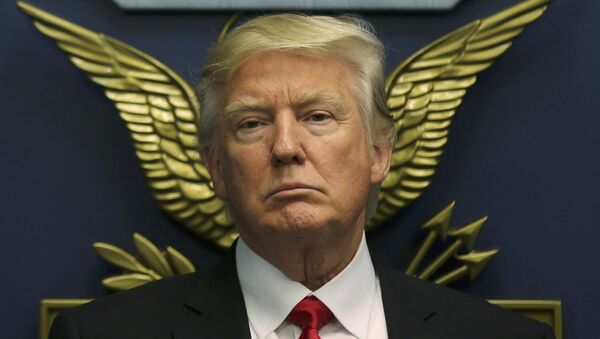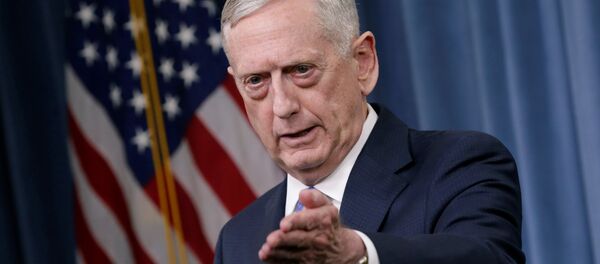So far, the US Senate has unanimously confirmed 65 of US President Donald Trump's Defense Department nominees, including former Textron CEO Ellen Lord to be undersecretary for acquisition, technology and logistics and investment banker Richard Spencer to be Navy secretary, Defense News reported Sunday.
However, significant roles like Army secretary, undersecretary of defense for personnel and readiness and undersecretary of defense for policy, still require Senate confirmation before they can be filled.
In addition, four Pentagon nominees were omitted from the pre-recess confirmation vote before Congress went on summer vacation, including David Joel Trachtenberg for principal deputy undersecretary of defense for policy, Charles Stimson for Navy general counsel, Owen West for assistant secretary of defense for special operations and low-intensity conflict, and John H. Gibson II for the Defense Department's deputy chief management officer.
Former Senate Armed Services Committee Staff Director and former Marine Corps General Arnold Punaro defended the administration's deliberate pace, given the somber state of world affairs, and blamed confirmation delays on Senate Democrats.
"These are national security nominees, and you're talking about the most dangerous time here, worse than the Cold War," Punaro expressed. "These people don't deserve to be dying on the vine on the Senate calendar."
Several defense companies have expressed that delays in filling defense positions have negatively impacted their businesses.
General Dynamics CEO Phebe Novakovic explained that the company's second-quarter earnings have been impacted.
"Without these appointments, it is difficult to process contracts and get authorized and appropriated funds obligated to contracts," Novakovic said, according to Defense News.
"At this juncture, both are proceeding more slowly than we thought would happen. Nevertheless, we remain confident in the direction of defense spending," she added.
Chief Executive of Leidos Holdings Inc Roger Krone and Defense Consultant Loren Thompson also expressed their concerns.
"The still-high number of unfilled leadership appointments and the approaching government physical year-end continue to serve as headwinds," Krone said.
"Most of the top jobs at the Pentagon have taken way too long to fill in the new administration, and the military will need to play catch up for the next two years," Thompson told CNBC.
At least one important role at the Pentagon was filled last month, with Boeing executive Patrick Shanahan confirmed by the Senate as deputy defense secretary.
An August 20 Vanity Fair article noted that the US State Department is also short staffed, with many key ambassadorial and undersecretary posts still empty, and Scientific American recently pointed out that top science advisor posts also have yet to be staffed.



